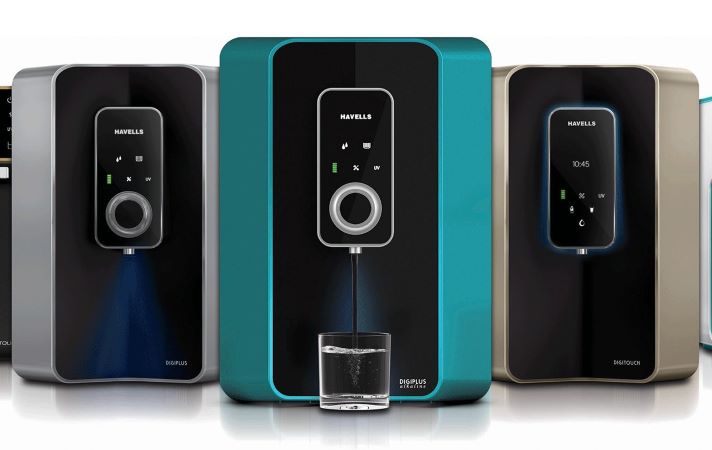Things to keep in mind before buying water purifier

Anupam Mathur
As of March 2024, approximately 4.9 million Indian residents were affected by groundwater contamination with salinity and iron being the biggest pollutants. As access to clean drinking water becomes increasingly vital in an age it is paramount, selecting the right water purifier for your home is a crucial decision. Considering that water is an unavoidable part of our daily diet, it becomes imperative for each of us to be mindful about the quality of water that we consume. With a plethora of options available in the water purifier market, the choice can seem overwhelming. From evaluating water quality to assessing filtration techniques, these key considerations will assist in selecting a purifier that meets specific needs and ensures the safety and purity of your drinking water.
Know Your Water
The primary step in selecting the appropriate water purifier involves understanding the quality of the water supplied to your home. This is essential for making informed decisions and becoming aware of the reliability and source of water. Different homes receive water from various sources, including municipal supplies, bore-wells, natural bodies, water tanks or a combination of tanker and municipal water, each requiring different purification methods. RO (reverse osmosis) systems, for instance, use a high-pressure pump to push water through a semipermeable membrane with pores as tiny as 0.00001 microns, leaving behind dissolved particles and contaminants. Additional filtration stages, such as sediment and activated carbon block filters, further enhance water quality by removing suspended impurities, chlorine, odors, and pigments. On the Other hand, UV purifiers swiftly eliminate bacteria and viruses by exposing them to ultraviolet light, though they cannot remove dissolved solids or chemicals. Alternatively, RO+UV (reverse osmosis + Ultrafiltration) purifiers combine both technologies for comprehensive water purification, ideal for impure or tap water sources.
Water Quality
Testing water quality before selecting a purifier is often overlooked, yet crucial. A one-size-fits-all approach does not apply. Professionals can aid in testing water quality, identifying contaminants present, including TDS (Total Dissolved Solids) which are the amount of organic and inorganic materials, such as metals, minerals, salts, and ions, dissolved in a particular volume of water. Alternatively, preliminary assessments at home involve using sensory cues: detecting strong odours, assessing taste for metallic or bleach-like flavours, observing visible particles like rust or cloudiness, and noting discolored water indicative of corrosion or mineral content. Once the water quality is assessed, suitable purifiers can be chosen. Areas with below 200ppm TDS are suitable for Ultraviolet (UV) water purifiers, while those with higher TDS levels, like hard water areas, require Reverse Osmosis (RO) purifiers. Combining both technologies is also an option, ensuring comprehensive purification. Additionally, Ultrafiltration (UF) and Carbon block purifiers are effective for low TDS water.
Water Consumption
It is essential to consider the daily water requirement of your household before purchasing a water purifier. Ensure that the purifier’s capacity aligns with your family’s consumption needs to avoid inconvenience or waiting times. Electric purifiers typically offer higher capacities compared to non-electric ones. Additionally, take into account the presence of children or babies in your family, as RO purifiers are recommended for their ability to effectively remove harmful chemical contaminants like Nitrates, Lead, Perfluoroalkyl and Polyfluoroalkyl Substances (PFAS). Family size should also be considered, as purifiers with sufficient storage capacity ensure access to purified water even during power outages. Counter-top or under-the-counter purifiers are advisable for larger families due to their ample storage capabilities.
Filtration Techniques
Water purifiers require filter or lamp replacements to maintain efficiency in water purification. The clogging of filtering mediums within removable cartridges can impede the purification process, leading to decreased flow rates and compromised water quality. Replacement schedules depend on factors like household water consumption, filtration system brand, water hardness, and specific unit features. While some purifiers come with filter change alarms, others require manual monitoring, necessitating replacement every 6-12 months or after filtering a certain volume of water.
Installation and Maintenance Costs
Before purchasing a water purifier, it is crucial to consider installation and maintenance costs as they constitute a long-term investment. Setting a budget based on usage and desired filtration technology is essential, with reputable brands often requiring an investment ranging from Rs 10,000 to Rs 12,000, depending on filter type and reliability. Maintenance costs should also be factored in, including filter replacements every three to four months and annual servicing. Warranty and return policies should be carefully reviewed to ensure product quality and coverage, as self-installation may void warranties. Additionally, verifying service coverage in one’s area and assessing the accessibility and reliability of customer service is advisable to address potential issues promptly.
In light of recent events such as the alarming findings of fecal contamination in water samples collected from residential areas in Ghaziabad, as evidenced by complaints of diarrhoea and fever among residents, the imperative for selecting the right water purifier for one’s home is underscored. These incidents serve as poignant reminders of the potential health risks posed by contaminated water sources, further emphasizing the critical need for effective water purification systems. By prioritizing factors such as water quality assessment, filtration technology evaluation, and maintenance consideration, you can proactively safeguard your health and the health of loved ones.
Anupam Mathur is Business Head, Water Purifiers and Kitchen Appliances, Havells


